WILDES LAST STAND
Makes brilliantly and acerbically clear [that] the casualties of war were not only the bloodied bodies of a generation of young men, but also the notions of truth, justice, and toleration. New York Times
*
The story of the Pemberton Billing trial is hugely entertaining and Philip Hoare has resurrected it in all its bizarre detail. John Mortimer, Literary Review
*
Written history is not often this fascinating, and hardly ever this amusing. Toronto Globe and Mail
*
Sharp as a bayonet account of social deviancy and repression in First World War Britain. Loaded
*
Philip Hoare handles the cultural background and context of the case masterfully. Catholic Herald
*
Hoare is a brilliant critic and biographer ... who has performed a quite unique piece of cultural forensic discovery. Attitude
Also by Philip Hoare:
Serious Pleasures: The Life of Stephen Tennant
Nol Coward: A Biography
The Sayings of Nol Coward (ed.)
Spike Island: The Memory of a Military Hospital
Englands Last Eden: Adventures in a Victorian Utopia
Leviathan: or, The Whale

WILDES LAST STAND

Scandal and conspiracy during the Great War
Philip Hoare
In the old days men had the rack.
Now they have the Press.
Oscar Wilde, The Soul of Man Under Socialism

In memory of Peter
This ebook edition 2011
First published in 1997 by
Duckworth Overlook
LONDON
90-93 Cowcross Street, London EC1M 6BF
Tel: 020 7490 7300
Fax: 020 7490 0080
www.ducknet.co.uk
NEW YORK
141 Wooster Street
New York, NY 10012
www.overlookpress.com
1997 by Philip Hoare
All rights reserved. No part of this publication may be reproduced, stored in a retrieval system, or transmitted, in any form or by any means, electronic, mechanical, photocopying, recording or otherwise, without the prior permission of the publisher.
A catalogue record for this book is available from the British Library
eISBNs
Mobipocket 978 0 7156 4321 1
ePub 978 0 7156 4320 4
PDF 978 0 7156 4319 8
Picture credits
Plate page 5 above: collection of Peter Burton; 7, 8 above (both) and below left: collection of James Gardiner; 11, 13, 18: British Library; 19 above, 20 (both), 24 (both): British Film Institute. Other illustrations are from private collections.

Contents

Acknowledgements
It was in Paul Fussells ground-breaking cultural study, The Great War and Modern Memory, which I read when working on a biography of Stephen Tennant, that I first heard of the Billing trial. Tennant conducted a traumatic post-war affair with Siegfried Sassoon, who reappeared in Pat Barkers Regeneration trilogy; as did an evocative recreation of the atmosphere around the Billing affair. In the meantime, the trial resurfaced in my research on Noel Cowards early life; reading original copies of the Imperialist and the Vigilante was a chilling experience, yet more so as the political complexion of Billings campaign became clear. Discovering Michael Kettles account in Salomes Last Veil (another coincidence; I had already decided on my title) led me to other, wider conclusions. This book owes much to Kettle and the other historians and biographers on whose work I have drawn.
I am also indebted to Hugo Vickers for his usual clear-eyed and practical assistance. Mark Ashurst, Michael Bracewell, Peter Goddard, Clare Goddard, Robert Holden, Christina Larcombe-Moore and Neil Tennant provided encouragement and intellectual vision. Many others contributed material and ideas, among them: Elaine Burrows, Peter Burton, Jane Bywaters, Roger Cazalet, Terry Charman, Karl Chatfield-Moore, James Chatfield-Moore, Michael Cockerill, Bryan Connon, Betty Eastman, Claire Eastman, Stephen Fry, James Gardiner, Katherine Goonetillake, Alix Holden, Michael Holden, Clyde Jeavons, Adam Low, Stephen Moore, Theresa Moore, Stephen Moss, Peter Parker, Jane Preston, Kenneth Rose, Patricia Thompson, Paul Walter, John Waters, and Simon Watney. Vivienne Westwood supplied sartorial inspiration.
I should also like to thank the following institutions: the British Library Department of Manuscripts and Newspaper Library; Associated Newspapers; the Imperial War Museum; Royal Victoria Park, Netley; the British Film Institute; the Southern Daily Echo; Johannesburg Art Gallery; Somerset House; the Guildhall Library; the Barbican Library; and the Theatre Museum.
Lastly, I must thank my agent, the redoubtable Gillon Aitken; Robin Baird-Smith, my elegant, patient publisher; and all the staff at Duckworth who made this book possible.
Philip Hoare, Shoreditch, 1997

Introduction

They may be yellow and crumbling, but pages of the January 1918 edition of the Imperialist newspaper still make startling reading. There exists in the Cabinet Noir of a certain German Prince a book compiled by the Secret Service from reports of German agents who have infested this country for the past 20 years, it reports. In the beginning of the book is a precis of general instructions regarding the propagation of evils which all decent men thought had perished in Sodom and Lesbia. The blasphemous compilers even speak of the Groves and High Places mentioned in the Bible There are the names of 47,000 English men and women Privy Councillors, wives of Cabinet Ministers, even Cabinet Ministers themselves, diplomats, poets, bankers, editors, newspaper proprietors, and members of His Majestys Household prevented from putting their full strength into the war by corruption and blackmail and fear of exposure. No English man would be naturally guilty of such offences: it required the filthy Hun to lead him on. Naval dockyards and engine rooms were infiltrated, and the stamina of British sailors was undermined Even to loiter in the streets was not immune agents of the Kaiser were stationed at such places as Marble Arch and Hyde Park Corner Wives of men in supreme position were entangled. In Lesbian ecstasy the most sacred secrets of State were betrayed. The sexual peculiarities of members of the peerage were used as a leverage to open fruitful fields for espionage.
The publisher of the Imperialist was Noel Pemberton Billing, thirty-seven-year-old Independent member of parliament for East Hertfordshire. A man of notable prejudices, he had been indicted for libel on at least two previous occasions, as well as being often censured for unparliamentary language and the odd prosecution for driving at excessive speed. His politics were unerringly jingoistic: he called for internment of all enemy aliens, as well as punitive bombing of German cities; he called the scorn of his Parliamentary opponents the laughter of fools. But Billings latest campaign was a tour-de-force of prejudice, encompassing his manifold obsessions in one almighty conspiracy theory. At its centre was the allegation that the 47,000 were ruled by the still extant cult of Oscar Wilde, a foreign decadence corrupting the cultural and political elite. Billings claims struck deep into the sensibilities of wartime Britain and its leaders, sensitive to criticism of the way the war was being fought. His allegations played on deep-seated ideas of nationalism, xenophobia, homophobia and anti-semitism which remain with us today.

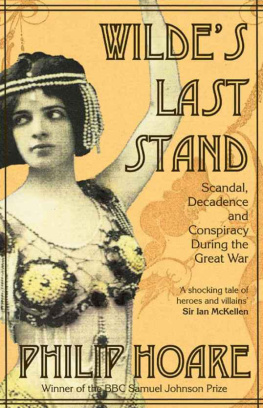
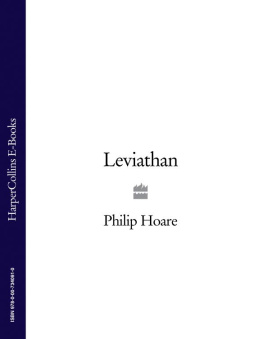
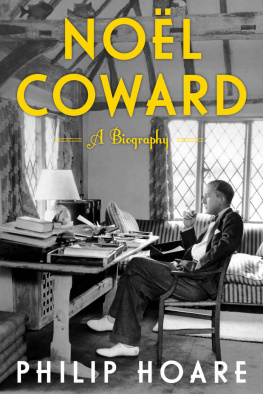
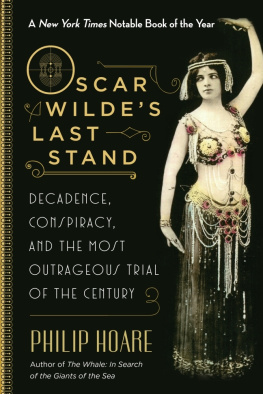

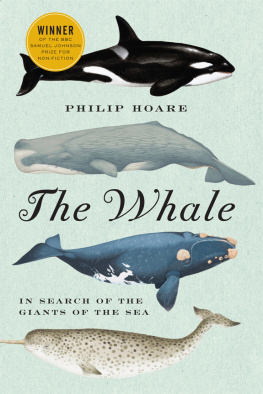
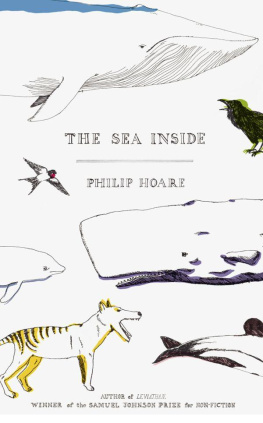
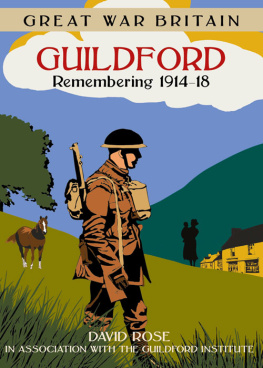
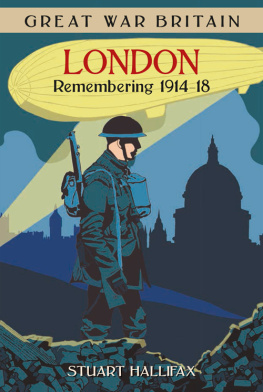
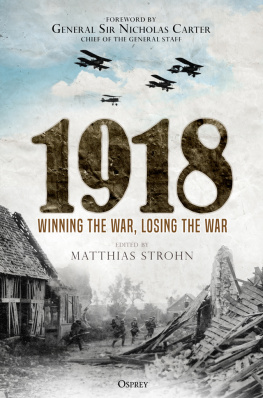
![Wilde Oscar - The secret life of Oscar Wilde: [an intimate biography]](/uploads/posts/book/228457/thumbs/wilde-oscar-the-secret-life-of-oscar-wilde-an.jpg)
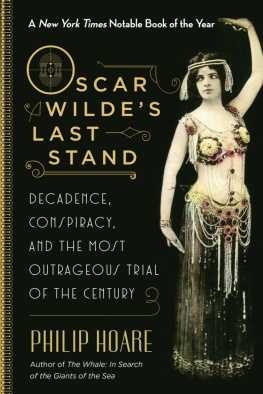

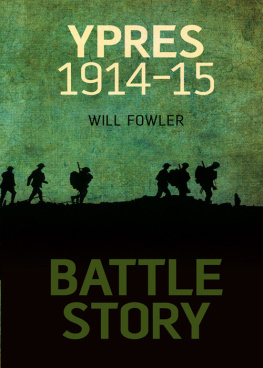
 WILDES LAST STAND
WILDES LAST STAND 

 Contents
Contents 